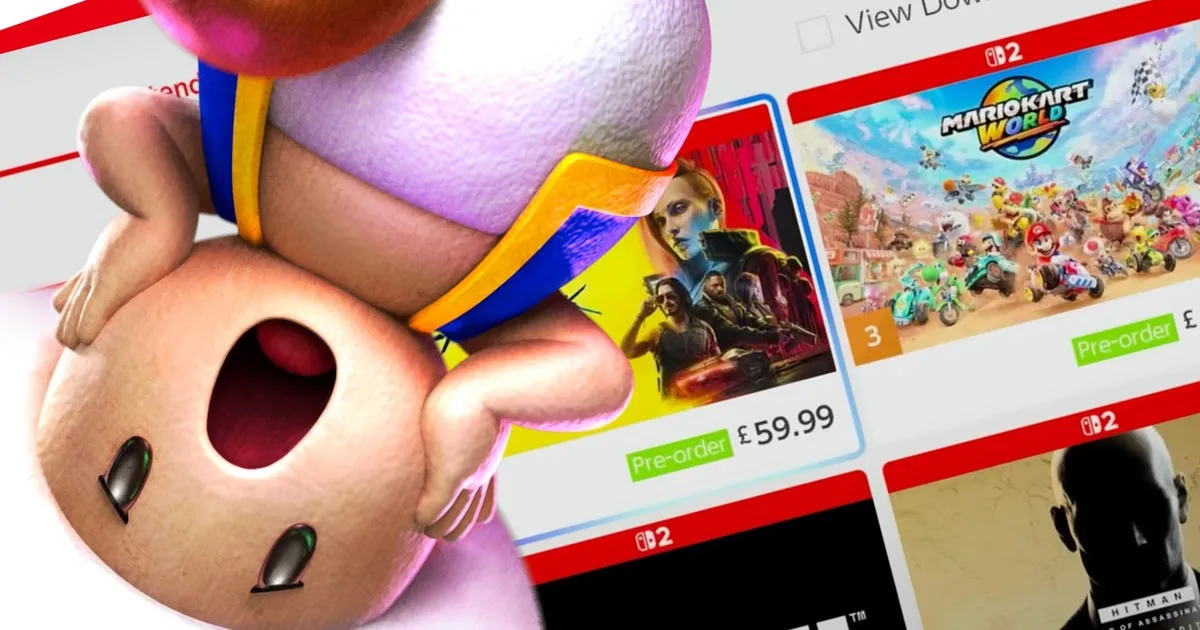
The Nintendo Switch 2 has made an impressive debut, with Nintendo announcing it as their fastest-selling console to date, just days following its launch. This early success is a strong indicator of the excitement surrounding this latest hardware. However, despite the positive outlook for Nintendo, a recent report indicates that third-party titles have faced significant challenges in achieving sales expectations.
According to Chris Dring from TheGameBusiness, who analyzed key sales figures for the Switch 2 launch in his recent newsletter, the numbers reveal a stark reality for third-party publishers. Notably, 48% of physical game sales in the UK and 62% in the US were dominated by first-party titles. If we consider the Switch 2's Mario Kart World bundle, this figure escalates to a staggering 86% of physical game sales in the UK being attributed to first-party games.
At launch, Nintendo offered three physical titles: Mario Kart World, along with Switch 2 versions of The Legend of Zelda: Breath of the Wild and Tears of the Kingdom. In contrast, third-party publishers managed to release a total of 13 physical games. While these figures show an improvement compared to the original Switch’s launch—where 89% of physical sales came from first-party games—many third-party releases have reportedly achieved disappointing sales figures, despite featuring high-profile titles like Civilization 7, Split Fiction, Street Fighter, and Hogwarts Legacy.
In a candid conversation with TheGameBusiness, one unnamed third-party publisher expressed disappointment regarding their Switch 2 launch sales, stating they fell below even the most conservative estimates. This sentiment reflects a broader trend of struggle among third-party titles during this crucial launch window. However, not all third-party games have fared poorly. Dring points out that CD Projekt's Cyberpunk 2077 emerged as the best-selling third-party game during the Switch 2's initial rollout, achieving commendable sales figures.
Dring emphasizes that CD Projekt was among the few publishers who opted out of using Nintendo's controversial Game Key Cards, which necessitate full downloads for gameplay. CD Projekt's Jan Rosner previously noted the importance of physical editions, saying, "Do not underestimate the physical edition. It's not going anywhere and Nintendo players are very appreciative of physical editions that are done right."
Dring provides several insights into why many third-party titles are struggling on the Switch 2. One key factor is the console's enhanced backward compatibility, which allows players to explore the extensive catalog of the original Switch. This feature could be diverting attention away from new third-party releases. Additionally, the lack of reviews for these third-party games—due to Nintendo's decision not to provide early consoles to the press—has likely hampered visibility and awareness.
Furthermore, it is worth noting that the majority of third-party titles available at launch are ports of older games. This trend means that many core players may have already experienced these games on other platforms, diminishing their interest in purchasing them again for the Switch 2.
While the Nintendo Switch 2 has undoubtedly made a strong impression at launch, the challenges faced by third-party publishers highlight the complexities of the gaming market. As Nintendo continues to innovate and expand its first-party offerings, it remains to be seen how third-party titles will adapt and thrive in this competitive landscape.